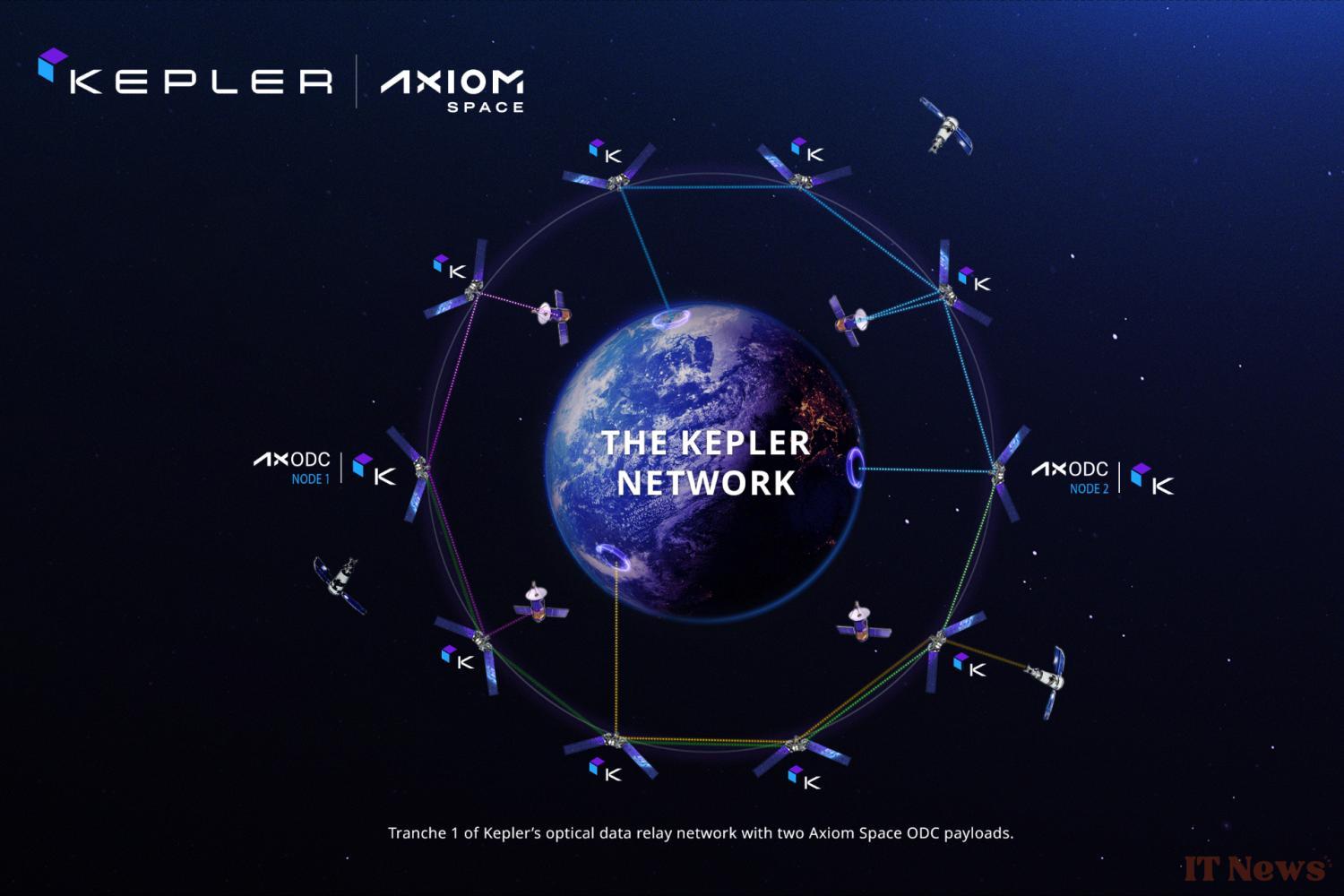In a press release spotted by Space.com, startup Axiom Space announced that it will deploy the first two units of its orbital data center project by the end of the year.
This initiative aims to solve a global problem in modern space science: to exploit the data collected by vehicles parked in orbit, such as observation satellites, it must first be brought back to Earth in raw form. However, these devices harvest immense amounts of data, and these activities therefore require the use of a large amount of bandwidth.
To get around this problem, more and more companies now want to process this material directly in space. After an observation, for example, a satellite could transmit its raw data to an orbital storage and processing center. Researchers could then simply download already processed and therefore smaller datasets, thus easing the pressure on the network infrastructure.
Axiom is not the first company to bet on this new vein. Some tech and aerospace heavyweights have already started to make their mark. One example is the European giant Thales Alenia Space. In 2024, as part of a partnership with Microsoft, the Franco-Italian joint venture deployed such a demonstrator, based on Azure, on board the ISS to test the viability of the concept.
Towards the first commercial orbital data center
But at present, this is still only a proof of concept in the context of a pilot project. Axiom, on the other hand, seems determined to move to the commercial phase as soon as possible.
Indeed, the two satellites in question are intended to be integrated into an optical communications network designed by the Canadian company Kepler Communications, which is also due to be deployed at the end of the year. This infrastructure will be dedicated to processing the large amounts of data collected by Earth observation satellites. And above all, it will be quickly made available to the first customers.
"Our orbital data center nodes will soon be operational," said Kam Ghaffarian, CEO, executive chairman, and co-founder of Axiom Space, in a statement. "We have agreements with users around the world to deploy initial space-based cloud services, not just capability demonstrations."
It will be interesting to see if this offering is economically attractive enough to attract many customers, as the stakes are higher than one might think. And for good reason: in the long term, the goal is not just to manage spacecraft data.
Strong arguments
More and more analysts are considering the potential of moving all data centers into space. This idea might seem absurd; this type of equipment requires a lot of maintenance, and it must be admitted that the prospect of having to carry out all these operations in such a hostile and difficult-to-access environment is extremely daunting. But other arguments also suggest that this might not necessarily be a bad idea.
For example, an orbital data center would also benefit from constant exposure to sunlight. It could therefore be powered exclusively by solar energy. Furthermore, the system could theoretically be cooled entirely using passive radiators. This would avoid having to invest staggering amounts of energy in active cooling systems like terrestrial data centers do. Two points that are far from negligible in the current context.
Certainly, it will require overcoming very serious engineering hurdles to get there. But Axiom seems convinced that this is a very promising niche. It could even be a new priority for the firm, which has found itself in a very precarious financial situation due to the questionable strategy of its former CEO.
NASA: A Key Partner in an Extremely Precarious Financial Situation
Check back in a few years to see if this approach will have gained traction, or if it will end up in the graveyard of bad ideas.



0 Comments